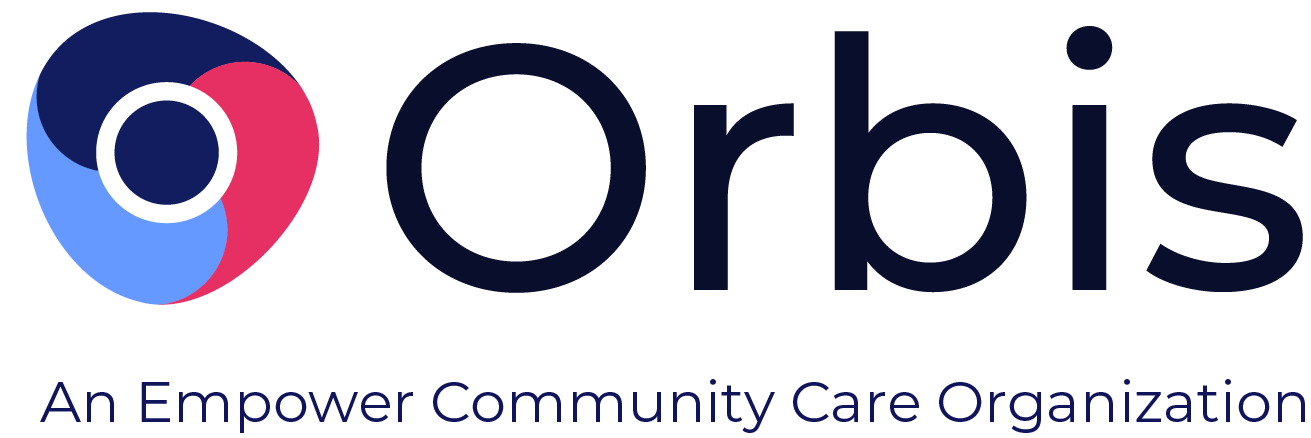The criminal justice system was not designed with women in mind. Historically shaped by policies and interventions tailored to men, it has often failed to address the distinct challenges that justice-involved women face.
Gender-informed justice interventions recognize that women's pathways into the system (and their needs within it) are vastly different from those of men. A justice approach that does not account for these differences risks perpetuating cycles of trauma, recidivism, and instability.
Women in the justice system are more likely to have experienced domestic violence, sexual abuse, mental health struggles, and substance use disorders. Unlike a one-size-fits-all model, gender-responsive interventions provide targeted support, helping women build resilience, heal from trauma, and develop critical life skills.
As a leader in evidence-based, gender-responsive interventions, Orbis Partners designs programs that integrate case management, trauma-informed care, and relational theory to support justice-involved women at every stage—from sentencing to reintegration.
Understanding Gender-Informed Justice Programs
A gender-informed justice program is rooted in recognizing the unique pathways that lead women into the system and addressing the challenges they face once inside. Unlike traditional interventions, these programs consider the longstanding impact of trauma and abuse that justice-involved women often carry. As Melissa Spooner, M.A., Senior Associate, Interventions at Orbis Partners, explains:
"Connecting the importance of building relationships, understanding what a healthy relationship is, and connection to the community for her to build up her own social capital and support. Women express emotions differently, and many of the programs she has been involved in have not effectively provided her with the skills to connect her behaviors to her thoughts and feelings. Substance abuse, mental health, victimization, and domestic violence are also key programming areas."
Gender-informed programs can address these critical areas by focusing on helping women build healthy relationships, regulate emotions, and connect their thoughts and behaviors to their circumstances. By fostering these skills, women can build social capital and support networks that enable them to heal and thrive.
Challenges Faced by Women in the Criminal Justice System
Women entering the criminal justice system often carry a unique burden of trauma and vulnerability that sets them apart from their male counterparts. Many have endured higher rates of physical and sexual abuse, with studies showing that a history of victimization is a major predictor of recidivism for female offenders—a correlation not observed in men. Compounding this are mental health struggles, often linked to unresolved trauma and substance use disorders, which are frequently a coping mechanism for past abuse.
Parenting responsibilities add another layer of complexity. Justice-involved women are often primary caregivers, and the need for parenting support and family reunification becomes a critical part of their rehabilitation. Without adequate resources, many face an uphill battle to rebuild relationships with their children while navigating the challenges of reintegration, such as finding stable housing, securing employment, and overcoming societal stigma. The one-size-fits-all approach historically applied in the justice system fails to address these distinct needs.
"Relational theory and trauma-informed practices are critical," Spooner says. "[Women] need to have brave spaces available to support feeling safe." Programs must ground themselves in these approaches and highlight a woman's strengths and the expertise she brings to her own life.
By creating brave spaces that prioritize safety, emotional connection, and trauma-informed care, gender-informed programs empower women to break cycles of violence and victimization. Incorporating these principles is essential to helping women reclaim their lives.
Orbis' Approach to Gender-Responsive Programming
Orbis Partners has established itself as a leader in delivering gender-informed justice interventions that are both evidence-based and deeply attuned to the needs of women.
Collaborative Case Work for Women (CCW-W)
Collaborative Case Work for Women is an evidence-based, gender-responsive case management model that supports justice-involved women from sentencing through reintegration into the community. It integrates cognitive-behavioral, strength-based, and trauma-informed approaches to help women develop individualized service plans, mobilize personal and community resources, and nurture long-term success.
Research shows CCW-W significantly reduces recidivism rates compared to traditional supervision models, highlighting its effectiveness in improving outcomes for women under community supervision. The program fosters collaboration between participants and service providers, emphasizing empowerment, community partnerships, and sustainable rehabilitation.
The Service Planning Instrument for Women (Spin-W)
The Service Planning Instrument for Women is a comprehensive risk/needs assessment and case planning tool for justice-involved women aged 17 and older. Developed to predict outcomes such as probation and parole success, reentry center performance, institutional behavior, and post-release recidivism, SPIn-W incorporates gender-responsive factors like childcare, family stability, trauma history, and mental and medical health.
It offers a streamlined pre-screen for early case decisions and generates computer-based results that translate into individualized case plans and recommended services. Customizable to various settings, SPIn-W provides justice agencies with a reliable framework to address the unique needs of women in the criminal justice system.
Moving On
Moving On is another evidence-based, gender-responsive intervention for at-risk and justice-involved women. It integrates strength-based, trauma-informed, and relational theories to help them build personal and social resources. The program aims to reduce criminal behavior and support women in creating alternatives to crime by promoting natural support and community connections.
Backed by research, Moving On has lowered recidivism rates in both institutional and community settings. The intervention consists of six modules, combining individual and group sessions over 9 to 13 weeks, with a flexible format suitable for continuous intake.
Utilizing cognitive-behavioral strategies and Motivational Interviewing, Moving On equips women with tools to achieve long-term well-being while helping agencies implement the program with fidelity.
Girls…Moving On
Girls…Moving On is a gender-responsive, cognitive-behavioral program for at-risk girls aged 12 to 21, helping them develop healthy relationships, enhance motivation, and build personal resources. Rooted in Relational Theory, Motivational Interviewing, and Cognitive-Behavioral Therapy, the program provides girls with strategies to address trauma, improve emotional regulation, and reduce their risk of justice system involvement.
Structured into seven modules, it combines individual and group-based sessions with a flexible intake process, allowing participants to join any module. By fostering mutual support and equipping girls with practical life skills, Girls…Moving On empowers them to make positive choices and build a more stable future.
Living Safely and Without Violence (LSWV)
Living Safely and Without Violence is an evidence-based intervention for women with a history of violent behavior, including domestic violence and self-harm. This program integrates cognitive-behavioral, strength-based, and trauma-informed approaches to help women understand the roots of their aggression, regulate emotions, and develop non-violent coping strategies.
LSWV acknowledges the impact of past victimization and provides participants with resources to improve interpersonal relationships and make safer choices. The program focuses on emotional regulation, relationship skills, self-awareness, and social awareness to reduce reliance on aggression and foster long-term behavioral change. LSWV equips facilitators with evidence-based tools to support women in leading safer, healthier lives.
Criminal Justice Staff Training
Creating Regulation and Resilience (CR/2), developed in partnership with CORE Associates, is a trauma-informed communication model designed to enhance interactions between corrections staff and justice-involved individuals. The model follows a two-phase approach, first helping clients achieve emotional regulation and then building resilience through problem-solving and decision-making.
Unlike traditional interventions, CR/2 is adaptable for use across security, program, and community corrections settings, integrating Cognitive Behavioral Therapy, Motivational Interviewing, and Core Correctional Practices to improve client engagement and compliance. It also includes a self-care component to help staff manage workplace stress and enhance job performance.
Research supports CR/2's effectiveness in reducing recidivism, institutional violence, and crisis interventions while increasing compliance and successful reentry. Orbis delivers this staff training through interactive in-person sessions or e-learning, with a coaching framework for long-term implementation.
The Broader Impact of Gender-Informed Programs on Society
The benefits of interventions for women extend beyond the women they serve, creating ripple effects that strengthen entire communities.
As previously mentioned, many justice-involved women are mothers, and their participation in gender-informed programming helps repair family relationships, promote healthier dynamics, and prevent intergenerational trauma. Children of justice-involved women equipped with emotional regulation and resilience tools are more likely to break the cycle of adversity and thrive.
Economic benefits are another critical outcome. Gender-informed programs equip women with skills to reintegrate into the workforce, reducing dependency on public assistance and contributing to local economies. They also reduce the financial burden on justice systems by reducing recidivism rates.
Spooner shared that gender-responsive programs are essential for breaking the cycle of violence and victimization. They challenge stereotypes and inequities faced by justice-involved women, warranting that the solutions are not just 'borrowed' from male-focused interventions but tailored to women's unique needs.
Transforming Justice Through Gender-Informed Solutions
"Women and girls must be included as stakeholders to enhance the foundation that they are the experts in their own lives," Spooner says. "Justice systems need to be intentional about inclusion, especially for transgender women, survivors of trafficking, and women incarcerated for drug-related offenses." The path forward is clear: policymakers and justice agencies must invest in gender-informed solutions that reflect the real needs of women in the system.
Take the first step today. Explore how Orbis' evidence-based, gender-responsive interventions can transform your justice programs and the lives of the women you serve. Together, we can create a justice system that works for everyone.
Orbis Partners provides solutions for criminal justice and human services systems, specializing in designing and implementing services for at-risk client groups. Orbis' risk, needs, and strengths assessment tools are designed to guide the casework process by incorporating an individual's unique needs. For more information about our assessments, visit our Assessments page.



